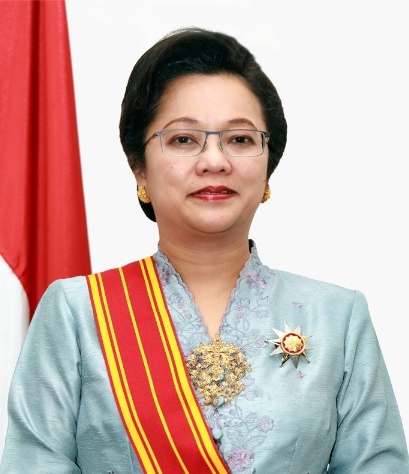Columns
Asia-Pacific’s path to social development
The region has shown that sustainable and inclusive social development is not a distant goal.
Armida Salsiah Alisjahbana
The Second World Summit for Social Development, held in Qatar earlier this month, marked a significant moment for global efforts to advance inclusive, equitable and sustainable development. Throughout the summit, contributions from the Asia-Pacific region demonstrated that diversity is not a barrier but a strength in crafting people-centred solutions.
Countries showcased innovative and scalable approaches to social protection, intergenerational solidarity, care economy transformation and poverty reduction. These efforts, rooted in local realities and scaled through regional cooperation supported by the Economic and Social Commission for Asia and the Pacific (ESCAP), offer valuable lessons for the world.
Climate-resilient and inclusive social protection
Social protection is a powerful tool for reducing poverty and inequality. With the right investments and reforms, it has even greater potential to drive inclusive and equitable development in the future as countries face added risks due to climate change. Indonesia’s large household cash transfer programme, Program Keluarga Harapan, has helped improve households’ livelihood capital and coping capacities in the face of climate change events, especially those relying on climate-sensitive sectors such as food systems or other natural resource-dependent activities. Public work programmes, such as the Fiji for Jobs 2.0 and the Mahatma Gandhi National Rural Employment Guarantee Scheme, help rural households adapt to climate shocks and improve livelihoods while creating climate-resilient community infrastructure. For many countries in the region, top-ups to non-contributory cash transfers are often used to extend emergency relief to large numbers of households. In Nepal, forecast-based financing allows the release of funding for pre-defined early actions, including social protection transfers, before a disaster occurs, reducing the impact on vulnerable communities.
Intergenerational solidarity
Demographic shifts are reshaping societies across the Asia-Pacific. Ageing populations, youth, migration and changing family structures demand new approaches to social cohesion and equity. The Maldives, in partnership with ESCAP, marked a major milestone in addressing population ageing by launching its National Policy in September, presenting a comprehensive framework to promote active and healthy ageing. The Lao People’s Democratic Republic recently adopted a decree and a policy on ageing and is now working to put them into practice. These recent developments demonstrate the commitment of countries in Asia and the Pacific to recognising that today’s youth are tomorrow’s older persons, that ageing should be viewed over the life course and that intergenerational solidarity benefits all. The ESCAP repository of policies on ageing and the related database of good practice support countries in sharing experiences and contributing to more effective regional cooperation.
Transforming the care economy
Valuing unpaid care and domestic work and investing in the care economy are central to building inclusive and resilient economies, and achieving sustainable development. Malaysia's Selangor state became the country's first state to adopt a comprehensive care economy policy in November 2024, addressing the entire care ecosystem. From training home-based caregivers to childcare subsidies, the policy demonstrates how subnational governments can transform care through integrated multi-stakeholder action. The Philippines offers a strong example of embedding care into local budgets to reach the most vulnerable women at the community level. Municipalities have pioneered local care ordinances that mandate an annual allocation for care programmes, mainstreamed into social welfare and gender initiatives, an approach which is now being used by thirty local government units. The Republic of Korea expanded its parental leave system in 2024 with the ‘6+6 scheme’, providing enhanced wage compensation for the first six months when both parents take leave within the child's first year of life, encouraging fathers' participation and shared caregiving responsibility.
Scaling solutions across borders
One of the most powerful messages from the Summit was the importance of regional cooperation. The Asia-Pacific region’s diversity has not hindered progress; rather, it has enriched it. Frameworks such as the Action Plan to Strengthen Regional Collaboration on Social Protection have facilitated resource mobilisation and knowledge exchange.
The Doha Political Declaration proposes a regional mechanism to monitor commitments made at the Summit, ensuring accountability and continuous learning. The region’s emphasis on multilateralism and solidarity offers a model for global cooperation in tackling shared challenges.
The ESCAP is fully committed to supporting the regional follow-up of the Declaration. Building on its established platforms, including the Committee on Social Development and the Asia-Pacific Forum on Sustainable Development, the commission will continue to provide inclusive spaces for dialogue, review and policy coherence aligned with the 2030 Agenda and reflecting regional priorities, including on leaving no one behind, gender equality, decent work, social protection and intergenerational solidarity. The ESCAP will also continue to strengthen regional capacity to collect disaggregated social development data and support national statistical systems in monitoring progress and informing policy, helping ensure that progress toward the 2030 Agenda is accurately tracked and gaps are identified.
Leading the way on social development
The Asia-Pacific region has shown that sustainable and inclusive social development is not a distant goal. Rather, it is achievable through inclusive, locally grounded, regionally coordinated and forward-looking action. From care to climate, from youth to aging, the region’s solutions are shaping a future where no one is left behind.
As the world reflects on the outcomes of the Second World Summit for Social Development, Asian and Pacific contributions stand out not only for their innovation but for their deep commitment to equity, resilience and human dignity. The journey continues, led by a region that understands that development must be for all, by all.




 13.12°C Kathmandu
13.12°C Kathmandu















